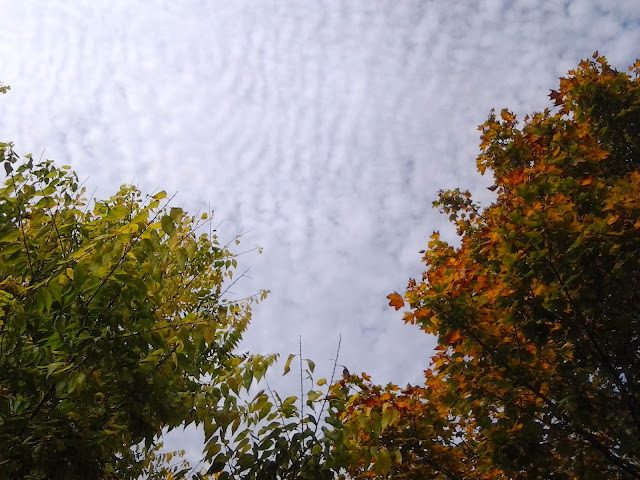It's fascinating to observe our fellow human beings. Even in situations where one would imagine that anyone would be completely happy and grateful, one sees a surprising proportion of people showing obvious signs of sadness, disappointment, and downright misery. Life just does not measure up to their hopes and expectations, no matter how fine it is. A sadly large proportion of us assume that there's a mechanical connection between our happiness and our idea of what a perfect world is. Of course this is completely off base.
One's happiness is entirely dependent on one's ability to hold all of life in a loving embrace, regardless of what's going on. This is precisely the opposite of what most of us think. We are entirely responsible for our attitude, which has nothing whatsoever to do with what's happening on the outside or even inside of us. It's all about us not just having, but being unconditional love. And, "whether you think you can, or think you can't, you're right."
Showing posts with label just this. Show all posts
Showing posts with label just this. Show all posts
Friday, 17 April 2015
#669 Who's Responsible If Not Me?
Labels:
acceptance,
anatta,
anicca,
attitude,
dreams,
dukkha,
embracing,
equanimity,
happiness,
hopes,
just this,
kindness,
life as it is,
loving-kindness,
misery,
sadness,
self-centeredness,
unconditional love,
wallowing
Friday, 27 March 2015
#655 Directly Experiencing What Is
“… we have to drop our attachment to mental categories; then the true meaning can infuse us.”
Tanahashi K, Chayat RS. “Endless Vow. The Zen Path of Soen Nakagawa.” Shambhala, Boston, 1996.
Monday, 6 October 2014
#571 Learning What 'Just This' Holds
Sitting in meditation, thought proliferation may arise: "When is this going to be over? I have a lot to do. I'm getting fidgety. Let's get the show on the road! etc etc etc"
"When we want something to be over, we lose compassion for ourselves, now." John Tarrant
Can we fully accept self-talk, and set it aside for now? Can we learn to settle for "just this"?
Suppose we have a silent, peaceful dimension - without self-talk or other noise, without any time-related issues.
Just for the duration of this sitting, can we - without any agenda - simply rest in silence, stillness, peace?
"When we want something to be over, we lose compassion for ourselves, now." John Tarrant
Can we fully accept self-talk, and set it aside for now? Can we learn to settle for "just this"?
Suppose we have a silent, peaceful dimension - without self-talk or other noise, without any time-related issues.
Just for the duration of this sitting, can we - without any agenda - simply rest in silence, stillness, peace?
Sunday, 5 October 2014
#570 What Remains When Self-talk is Released?
In Mindfulness practice, as we gradually, gently learn to let go of identifying with incessant self-talk (“thought proliferation”), and become more engaged with the physical experience of the present moment ("just this"), we experience interesting shifts.
This (or any other) statement / concept, in itself as a thought, is merely equivalent to self-talk - "blah, blah, blah ...".
BUT how are you experiencing this? How does it impact your one, fleeting, precious life?
Labels:
awareness,
concepts,
engagement,
experience,
experiential,
just this,
meditation,
mental chatter,
mental proliferation,
mindfulness,
practice,
self,
self talk,
shift,
thought proliferation,
thoughts
Sunday, 27 October 2013
#422 The Direct Physical Feel of Things
In mindfulness meditation practice we constantly bring attention to the PHYSICAL FEEL of various objects of attention: the breath in the belly (hara, dan tien or tanden), posture, muscle tone, sounds etc. At the same time, we let go of words, stories (self-talk), concepts etc. We emphasize direct experience of just this moment, then just this moment, then just this ... To stabilize just this, we notice when attention has drifted off, accept this as a fact, and seamlessly bring attention back to just this.
Perception - the act of contacting sense objects - becomes as clear & obvious as when physically touching a solid object. Awareness comes back home to our bodies, filling it like sand fills a bag of sand. We stand solidly on the earth, sit firmly on a chair or cushion. Perhaps this is what "groundedness" refers to.
There is clarity, simplicity, a lightness of being to directness. We are progressively letting go of the many barriers (boundaries, avoidances, filters, defences etc) we previously erected between ourselves and life straight-up. These barriers were necessary, but are now hindrances that we intentionally release.
Wilber K. No boundary. Eastern and Western approaches to personal growth. Shambhala, Boston, 1979.
Perception - the act of contacting sense objects - becomes as clear & obvious as when physically touching a solid object. Awareness comes back home to our bodies, filling it like sand fills a bag of sand. We stand solidly on the earth, sit firmly on a chair or cushion. Perhaps this is what "groundedness" refers to.
There is clarity, simplicity, a lightness of being to directness. We are progressively letting go of the many barriers (boundaries, avoidances, filters, defences etc) we previously erected between ourselves and life straight-up. These barriers were necessary, but are now hindrances that we intentionally release.
Wilber K. No boundary. Eastern and Western approaches to personal growth. Shambhala, Boston, 1979.
Subscribe to:
Posts (Atom)




